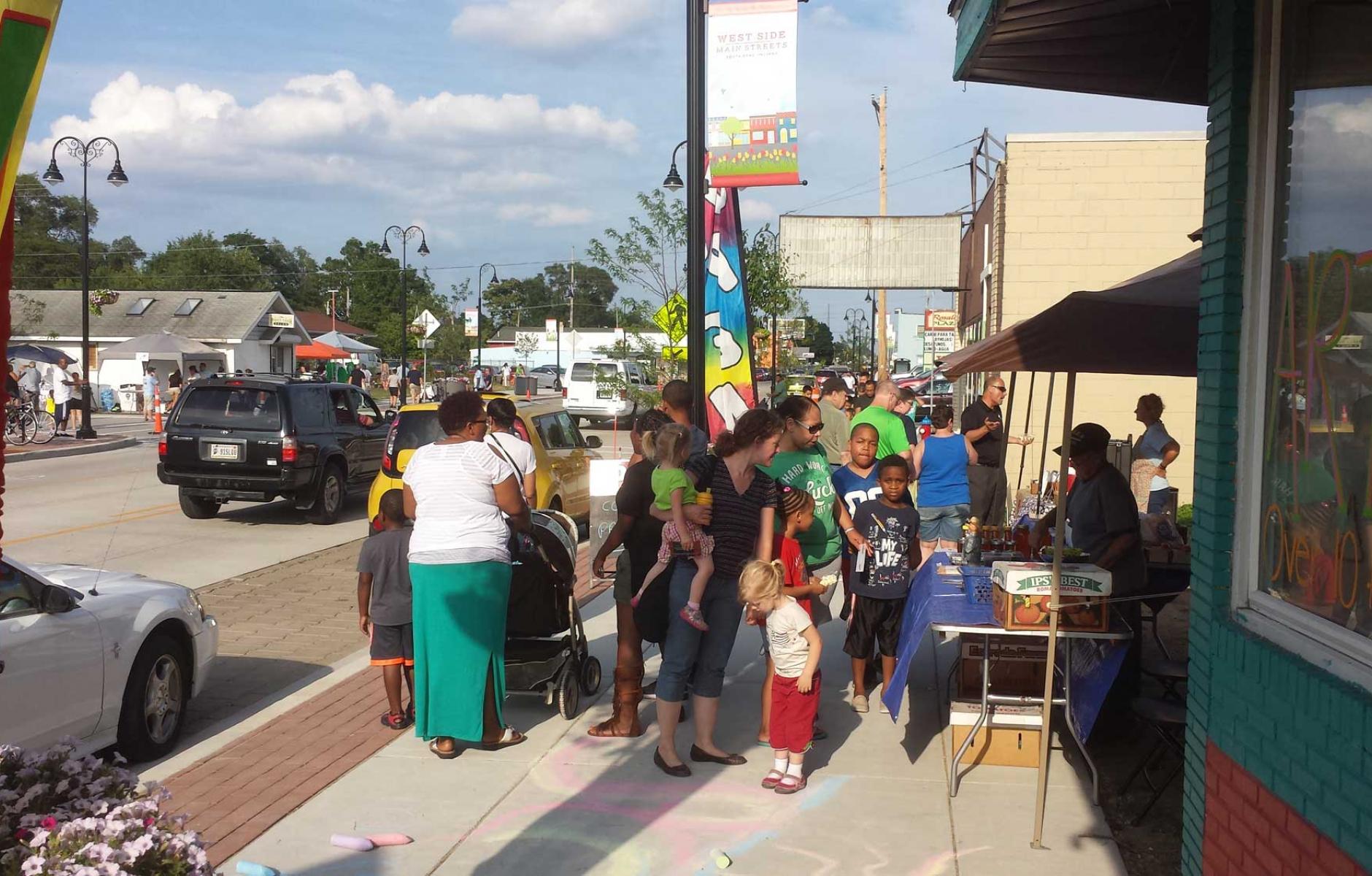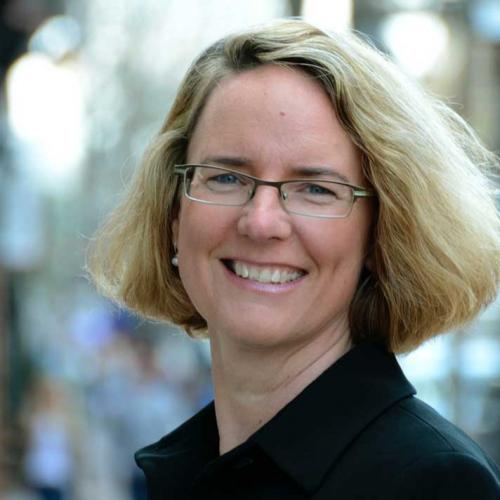
CNU 2020: Year in review
After all the twists and unexpected events of 2020, it's astonishing how much we achieved. We started the year by simplifying our mission statement to clearly state that we champion walkable urbanism. To me, that mission means scaling up and amplifying the work of our members and allies. It means accelerating the pace of change to create more socially just, economically robust, environmentally resilient, and people-centered places.
A great example of amplifying the work of our members is the newly proposed Economic Justice Act (S.5065), a $435B federal bill to make immediate and long-term investments in Black communities and other communities of color. Introduced on Friday in the Senate (December 18, 2020), this proposal includes the Restoring Neighborhoods and Strengthening Communities Program, a $10B five-year Highways to Boulevards pilot program that supports community freeway removal in neighborhoods across the country with grants for engagement and capacity building, feasibility studies, and capital construction. CNU worked closely with the Senate Environment Public Works Committee on the structure and language of the bill to help provide the support that local advocates and Highways to Boulevards campaign leaders need.
Here’s a rundown of some other highlights from this past year.
We started the year partnering with the Seaside Institute and a national team of experts including Nelson\Nygaard and DPZ CoDesign to conduct a workshop on autonomous vehicles and other technologies for the Highway 30A corridor in Walton County, Florida. A few weeks later, we traveled north to Buffalo, New York, fora four-day design workshop with Stantec’s Urban Places and the City of Buffalo on “The Future of Mobility: Remaking Buffalo for the 21st Century.” The report highlights how cities can start planning for new transportation technologies today and implement them in a way that adds to all residents’ quality of life. When the Mayor of Buffalo rolled out the final report in December, he also announced two RFPs, one for infill development, the other for a transportation demand management initiative. Proposals, according to the Mayor, “need to be consistent with the recommendations in the CNU report.” That is real impact.

A day before the COVID lock down started in DC, the CNU National Board approved our new strategic plan to help build resilient places through supporting complete neighborhoods, legalizing walkable places, and designing for a changing climate. The Board wrote in the strategic plan that “Enduring, holistic, and people-centered places are vibrant, inclusive, and prosperous. Achieving these outcomes demands a multidisciplinary approach that focuses on the intersection of physical design and the people who inhabit those spaces.” It is the Board’s goal that our 2020 Strategic Plan reflects and implements the Board’s statement on inclusion.
As lockdown continued, we launched On the Park Bench to provide an opportunity for CNU members, allies, and partners to discuss strategies for how they were addressing the impacts from the pandemic on their businesses and communities. The series has hosted webinars ranging from the role of small-scale manufacturing in commercial revitalization to a recent episode about equity-first strategies for building resilience within communities. Dhiru Thadani recently helped us launch Author’s Forum on Urbanism, which is a monthly series featuring authors in an interactive discussion of recent publications on urbanism.
With COVID-19 bringing the world to a halt, CNU staff delivered the first virtual Congress. CNU 28.A Virtual Gathering convened dedicated urbanists, allied industries, and activists at the heart of our movement for crucial conversations about the future of our communities. The virtual event made space for critical conversations among our membership that were more important than ever. Surprisingly, many members reported how many more sessions they attended! Like an in-person Congress, the social events lasted into the early hours of the morning. I have never been more proud of the staff or the members for showing the world how it's done. #CNUmembersROCK #CNUstaffROCK
Featured during the Congress was the 20th annual Charter Awards, which celebrated more than 300 awarded projects. From the beginning, the Charter Awards helped to identify significant trends in the movement, such as rebuilding more livable public housing, regional scenario planning, transit-oriented development, form-based codes, Tactical Urbanism, and more.

Unfortunately, given the on-going global pandemic, CNU 29.Design for Change will also be virtual. The upcoming Congress will focus on the power design holds to influence the way we live, to physically change the spaces we inhabit, as well as how we can use design to seek the change we want to see in neighborhoods, towns, cities, and across regions. In a rapidly changing world, design can create more resilient and just places as easily as it can contribute to deepening gaps. Interested in participating? The call for proposals is now open.
The Project for Code Reform (PCR) has grown from a demonstration of the importance of incremental code reform into a mainstay of our programmatic work. Alongside members, we have developed pathways to code changes in Michigan, Vermont, and New Hampshire. We have worked with other national nonprofits, like AARP, to increase the scale of this approach. We have delivered hundreds of coding changes that are community-specific, enabling the development of more Missing Middle housing, commercial corridor revitalization, and walkability. PCR demonstrates CNU’s capacity to take a long-running desire among the membership for addressing the nuances of code reform to a national scale. In the past year, we:
- Teamed up with Planetizen to create an hour-long training course, Incremental Code Reform: Enabling Better Places. In this free course, Susan Henderson and I walk through the impact of incremental code reform. Check it out and earn AICP credit!
- Partnered with the Vermont Department of Housing and Community Development, Vermont’s 11 regional planning commissions, AARP Vermont, the Vermont Housing Conservation Board, and the Vermont Association of Realtors to develop Enabling Better Places: A Zoning Guide for Vermont Neighborhoods. This guide provides Vermont municipalities with simple changes to their zoning regulations that will enable more attainable and affordable housing at a range of incomes, in walkable, inclusive and age-friendly neighborhoods.
- Partnered with AARP Livable Communities on the national publication, Enabling Better Places: A Handbook for Improved Neighborhoods, which gives a primer on the importance of small-scale, incremental policy changes that can be made without overhauling entire zoning codes and land use policies. This handbook has been created as an every person’s reference for discussions among local leaders and community members interested in improving where they live.
- Released Enabling Better Places: Commercial Corridors and Shopping Centers with the Michigan Municipal League and the Michigan Economic Development Corporation. The Guide tackles and breaks down the complex issues around suburban transformation into discrete actionable items. It's the suburban companion guide to Enabling Better Places: Users' Guide to Zoning Reform, which was released two years ago. Taken together, these documents provide coding suggestions to address the common barriers faced in the 505 Michigan communities.
CNU, the PCR faculty, and our state partners are designing and implementing virtual training components for each of these efforts. Reaching and helping thousands of communities address coding reform to enable more walkable, prosperous places is exactly what we aim for through our mission statement: championing walkable urbanism.
We are ending this year full of hope for the future of CNU, the movement we have built together, and cities everywhere. Our work wouldn’t be possible without CNU’s members, partners, and allies across the movement. CNU will continue to champion walkable urbanism by providing resources, education, and technical assistance to create socially just, economically robust, environmentally resilient, and people centered places. Please join me in celebrating all that we have accomplished–together–and stay close to see what happens thanks to your support in 2021.




